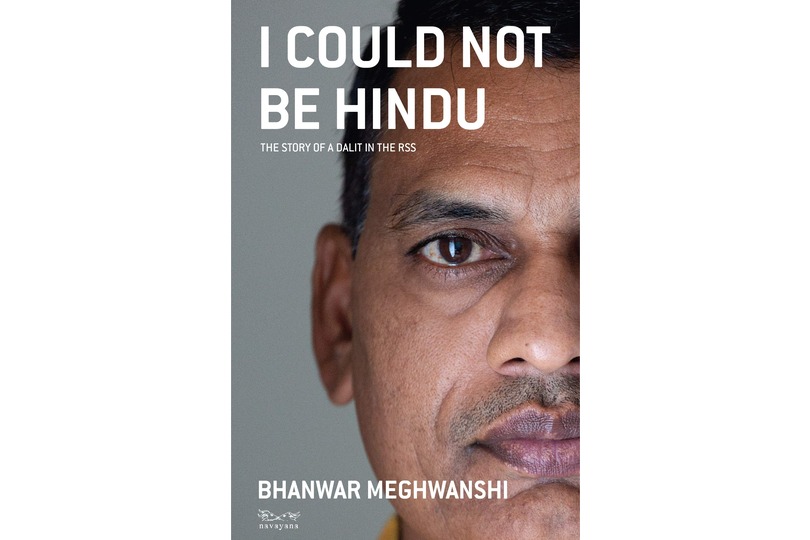English is Necessary to Reach a Larger Audience, Says Author Bhanwar Meghwanshi
on Oct 31, 2022

According to Bhanwar Meghwanshi, author of I Could Not Be A Hindu, The Story of a Dalit in the RSS and a former member of the Rashtriya Swayamsevak Sangh (RSS), translating Dalit work from other languages into English is crucial for reaching a larger audience.
Meghwanshi, whose autobiography Mei Ek Karsevak Tha was released by Navarun for the first time in Hindi in 2019, claims that "Hindi has its limits and English has its advantages."
Readers and critics paid little attention to the Hindi original.
People who have read it have praised it as a good novel, said Meghwanshi. But no significant Hindi publication gave it a review. On social media, several people discussed the book and shared personal stories. However, Hindi litterateurs paid it little heed either.
However, when the English translation—written by Nivedita Menon, a professor of political theory at Jawaharlal Nehru University (JNU) in New Delhi—was released by Navayana in the early 2020s, not only was it discussed by the English media but also by Hindi newspapers and writers.
According to Meghwanshi, "sometimes you gain approval from an English translation."
The book took a while to develop, starting with social media updates and ending with an English translation and positive reviews. Meghwanshi claims that she "published 52 chapters on Facebook about my days in the RSS." My friends requested that I give it a book-like form.
However, it wasn't simple to have the book published. "I sent the book to numerous publishers that requested it between 2014 and 2019," the author said. However, neither did they publish it nor did they reject it, said Meghwanshi.
Nobody was prepared to release it. Navarun ultimately decided to publish it in 2019. Meghwanshi explains, "However, they were concerned that it may lead to a scandal. "I promised them that we would fight it together if anything happened,"
Meghwanshi was eager for an English translation despite the Hindi version's lackluster response. He was introduced to Menon by S Anand, the creator of the independent publishing house Navayana in New Delhi, which specializes in publishing Dalit work. Meghwanshi recalls, "I was familiar with her work, but I had never met Professor Menon. I messaged her and asked her to translate my book.
Menon initially had doubts about embarking on the assignment. She worried that a work by a Dalit author that was being translated by a non-Dalit author may draw criticism. However, Navayana had previously released a highly popular version of B. R. Ambedkar's Annihilation of Caste, complete with an introduction by Arundhati Roy.
Meghawanshi adds, "I also promised Professor Menon that we would work together to resolve any problems that could arise. She accepted to translate my book since she appreciated my message.
There was no debate among Dalit academics over the translation. On the contrary, it got a lot of positive feedback.
The book enlightens the reader about the situation of the Scheduled Castes within the Sangh Parivar and in contemporary Indian society as a whole, according to the review of Meghwanshi's work by French political scientist Christophe Jaffrelot, who studied Dalit electoral self-assertion in his book India's Silent Revolution.
People from marginalized groups should write about their experiences, in Megwanshi's opinion. He claims that using the first person to write such tales might be particularly alluring.
A first-person story is more credible and popular, he continues. "It's an easy method to meet new individuals. People will relate to your tale and message after reading your account.
This is both a narrative tactic and a necessity at the moment. Meghwanshi warns, "Whatever you may have said earlier will be a waste if you don't stand out now.
He continues, "A memoir is a very emotional genre." "Autobiographies from suppressed castes and communities, including Muslims, must be written. Who will do it if they don't? The use of the first person should not be avoided.
I've heard from many people that I'm too young to write an autobiography. I declared that I couldn't wait to write it till I passed away. People connected with my experience with the RSS, add Meghwanshi.
Meghwanshi thinks that many individuals would be moved to write about their experiences as a result of his book. He cites Mool Chand Rana as an illustration. Rana was a former member of the RSS and created the Samajik Samrasta Manch to promote Dalit rights. Meghwanshi adds, "He is also writing on caste-based prejudice in the RSS. It's time to start writing our story now.
Meghwanshi recently traveled to Kashmir to speak with RTI activists.
"RSS publishes a lot of Kashmir-related material. It's been happening for a while. Article 370, Kashmir, and Kashmiri Pandits are important topics for RSS publications, according to him. Kashmiris haven't written as much about the area, in my opinion, as have RSS members.



.jpg)






.jpg)

.jpg)
.jpg)
.jpg)
.jpg)
.jpg)










Sorry! No comment found for this post.